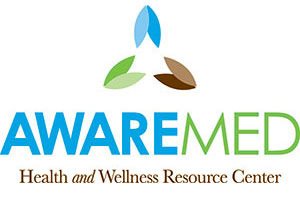Urinary Tract Infection (UTI) Treatment in Abingdon, VA

Plaguing as many as 1 in every 2 women, urinary tract infections (UTIs) are infections of any part of the urinary system—kidneys, ureters, bladder and urethra—though most infections affect the lower urinary tract (bladder and urethra). UTIs are often caused by bladder infection. While women are the most common victims of urinary tract infections, a UTI may also affect men as well as individuals of any age, with causes of UTIs differing based on gender and age. UTIs may spread to the kidneys if not treated and may lead to sepsis, which can be fatal.
To schedule a consultation with a healthcare provider in Abingdon that specializes in UTI treatment, call (423) 482-8711 or contact Dr. Dalal Akoury online.
Urinary Tract Infection Causes
While some illnesses have a single known source, other infections may point blame to a number of causes; urinary tract infections are of the latter camp and may be caused by a number of factors depending on gender and age.
E. coli, a type of bacteria commonly found in the gastrointestinal (GI) tract, is the cause of a majority of UTIs. In women in particular, whose anatomy includes a shorter urethra than men, bacteria has a shorter distance to travel from the anus to the bladder and may spread by way of the urethra. When bacteria infects the urethra and spreads to the bladder, it may eventually spread to the kidneys, which poses an increased threat of sepsis.
UTIs are also associated with sexual activity, with bacteria running rampant once introduced into the urinary tract. Sexually active persons who regularly introduce new partners are particularly at risk, with sexually transmitted infections—such as herpes, gonorrhea, chlamydia and mycoplasma—often causing UTIs to occur. Other risk factors for UTI development include:
- Certain kinds of birth control: Women who use diaphragms or spermicidal agents are typically at a higher risk.
- Menopause: Changes in the urinary tract resulting from a decline in circulating estrogen make menopausal women vulnerable to infection.
- Urinary tract abnormalities: Babies born with abnormalities of the urinary tract, which don’t allow urine to leave the body normally, are at a higher risk for developing UTIs.
- Blockages in the urinary tract, such as those caused by kidney stones or an enlarged prostate, can trap urine in the bladder, increasing the risk of UTIs.
- Catheter use: Those who require the use of a catheter (a tube which facilitates urination) in order to urinate, such as those who have been hospitalized or are paralyzed and have lost the ability to urinate on their own, have an increased risk of UTIs.
- Recent urinary procedures: Surgery to the urinary tract which involves medical instruments can increase risk of infecting the urinary tract.
Urinary Tract Infection Symptoms
Signs of urinary tract infection could vary by patient and gender. The most common of urinary tract infection symptoms include:
-
Problems urinating, including:
- Painful urination (dysuria); specifically, a burning sensation while urinating
- Increased urinary frequency and urgency (may include frequently passing small amounts of urine)
- Changes in urine coloration (may appear cloudy or red, bright pink or cola-colored) and smell (may be a stronger smell to your urine)
- Pain/pressure in lower back and lower abdomen
- Pelvic pain (in women especially, frequently in the center of the pelvis and around the area of the pubic bone)
- Tiredness
- Fever or chills (indicating the infection has reached your kidneys)
Depending on which part of the urinary tract is infected, however, more specific symptoms may vary:
| Part of Urinary Tract Infected | Signs & Symptoms |
|---|---|
Kidney |
Upper back and side pain |
Bladder |
Pelvic pain/pressure |
Urethra |
Burning while urinating |
Urinary Tract Infection Treatment
To ensure proper treatment, it is important to consult a healthcare provider if you suspect you suffer from a UTI. Your healthcare provider will likely conduct a uranalysis in order to inspect white blood cells, red blood cells or bacteria. Your urinalysis may be followed by a urine culture to identify what is causing your infection as well as to determine which medications will be most effective.
Urinary tract infection treatment will usually consist of prescribed antibiotics. Your healthcare provider might also prescribe a pain medication to numb your bladder and urethra so that symptoms of your UTI (such as burning urination) are reduced while the antibiotic runs its course. D-mannose and herbs like uva ursi (bearberry leaf) and goldenseal may also provide relief if you are looking for more natural UTI treatment. Taking probiotics during your course of antibiotics will likely be recommended by your healthcare provider in order to promote healthy gut flora and overall balanced health.
Chronic UTIs
Some patients may suffer frequent UTIs, in which case your healthcare provider may recommend more prolonged treatments, such as:
- Extended use of low-dose antibiotics, usually lasting 6 months (but perhaps longer)
- Vaginal estrogen therapy, if you’re postmenopausal
- Intravenous antibiotics to be prescribed in a hospital setting, if you suffer severe UTIs
Preventing UTIs
In order to prevent UTIs from developing, the following steps are recommended:
- Drink plenty of liquids, especially water, which helps dilute your urine and increases urinary frequency to allow bacteria to flush from your urinary tract before infection starts
- For women, wipe from front to back to ensure that bacteria doesn’t spread from the anus to the vagina
- Empty your bladder promptly after intercourse--drinking a full glass of water can help flush bacteria
- Change your birth control method
- Make healthy lifestyle changes including limiting sugary foods and beverages, especially coffee, tea, soda and alcohol
- Take cranberry extract or D-mannose supplements to prevent bacteria from sticking to the urinary tract
If you suffer from UTIs, whether spontaneously or frequent, it is important to receive proper treatment to restore urinary health. To schedule a consultation with a healthcare provider in Abingdon that specializes in UTI treatment, call (423) 482-8711 or contact Dr. Dalal Akoury online.
AWAREmed Health and Wellness Resource Center
Address
1604 Lamons LaneSuite 202
Johnson City, TN 37604
(423) 482-8711
www.awaremed.com
Hours
Mon:
9:00 am - 5:00 pm
Tue:
9:00 am - 5:00 pm
Wed:
9:00 am - 5:00 pm
Thu:
9:00 am - 5:00 pm
Fri:
9:00 am - 5:00 pm


